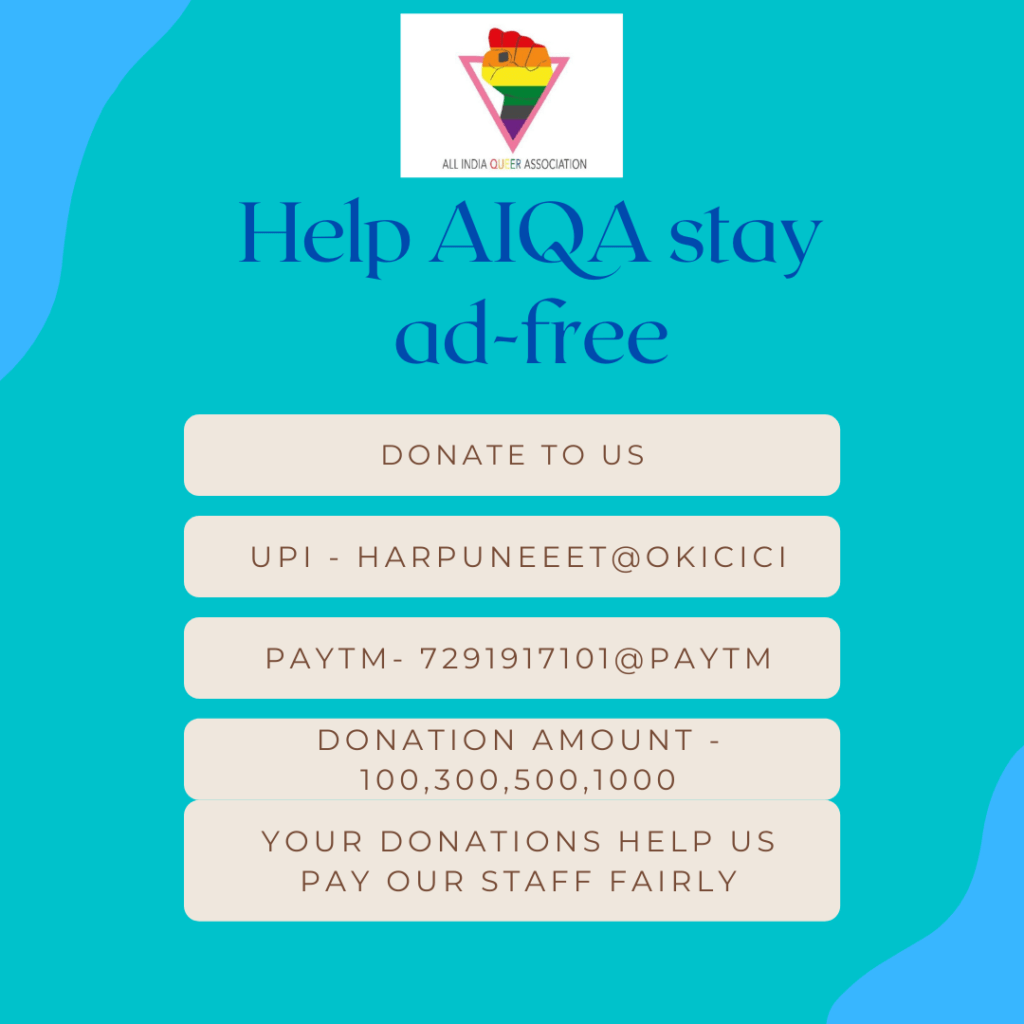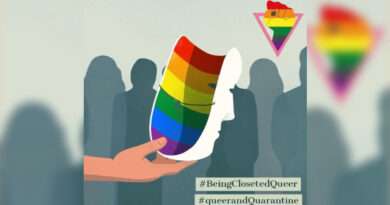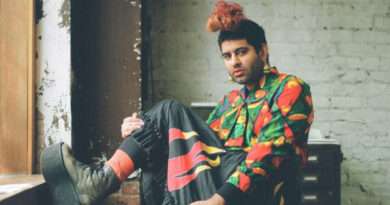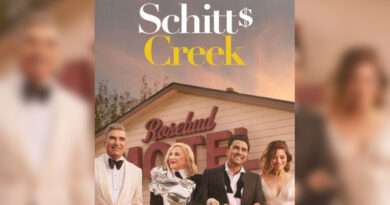Queer Community Should Come Together- Akassh K Aggarwal
Akassh K Aggarwal
Interviewed by Archa (IG: @goddessiangaygirl)
About the Interviewee:
Akassh K Aggarwal has broken these forced norms, and expresses himself unequivocally as a TEDx SPEAKER, ” He is an LGBTQIA+ Rights Activist, who through the power of his heart-rendering “LifeStories” has helped the society identify and confront its biases towards the community. During many years of his work in Social Empowerment, he has made a significant impact through his policy work in the past with NHRC, Police Departments, and many other Educational Institutions. He represents the voice of the LGBTQIA+ community through his guest appearances in various TV debates and National Public Events….a well-known social media Influencer, Bollywood Accessory Designer worked with Various Celebrities such as Sushmita Sen, Gauhar Khan, Swara Bhaskar, Mandira Bedi, Zeenat Aman, Laxmi Aggarwal and various other on many #Feminist Inspired Fashion Shows…Is now Actively working with Deepa Ardnarehwar Empowerment Foundation”
Hey Akassh! Please introduce yourself.
Hello my name is Akassh. Am an accessory designer and also a voice who believes to be, like I believe that my very existence is not just to live, but to be loud and proud queer individual, that’s what I love to do. So, am an accessory designer, a gay and human.
When did you first start practicing art?
I started practicing art… for me, I don’t know. For me all I was doing was. For me art means a medium of expression and that started just consciously or unconsciously, very early in my life, because the kind of drawing I was doing had a meaning of itself. I often used to draw things around woman going to kitties, you know, (laughs) kitty clubs! Then, I used to sketch a woman practicing fashion, women going to kitty clubs because for some people, kitty clubs might not be very empowering. I have seen this change around my own family. For the woman of the house that was the only freedom given to them. Therefore, small situations like this was affecting my individuality and understanding of life. So, while I was in the art class, there were people who were sketching live art, apples and bananas, and bottles, I was sketching woman. Maybe a principal walking down the corridor, I was being all what is speaking some something. It was a message and for me, art is that. So, I was doing art, an expression since long, and which has always led. And, it has been a part of me, my life, in all the things I do.
So, were you always drawn to creation and the whole process of creativity?
It was like, more like, it was not surreal for me, but it was like kicking for me, you know, I used to feel very kicked up. That was why I created. But, now in life, and I’m thirty. Now, I can see the peace and surrealistic ways of doing art. But initially, in my life is what about being kicked up, more furious, more powerful in expressing my art.
How has been your personal experience so far for being queer? How has been the journey of being a celebrity who is queer? Maybe some instances from your early life?
I never realize that was queer. I realized that it was illegal. I come from a generation where being gay was illegal, of course, being criminals. So, for me it was not about just worried of being gay. I was more worried of being unacceptable and illegal. We used to be sent to jail. In fact, very early in my life I was abused by a police officer. He said, “You’re an illegal, you’re a criminal because you’re born like this”. And I have felt abused because of my identity. So, for me my identity was more about facing the illegal part than to feeling strange or feeling different about it. My sexuality, actually, was not very much part of my discourse, considering seeing my sexuality, I was not a very active person. But if we talk about gender queerness, I felt feminine from very early stages of my life. When I was a six years old Susmita Sen became Miss Universe, and you know, she left a huge mark in my life since then until today. I look up to her a lot and the kind of femininity she left as a legacy, I have really imbibed that a lot. Somehow, she has being an icon to me, and somehow the femininity I belonged to, I was able to see through in people, like Kamala Bhasin ji. Then, Shabana Asmi. You know, all these individual people coordinating together as a medium of expressing change. So, I recall one movie named Monsoon Wedding, very early in my life and, I still remember that I was just silent for a very long time post that movie, irrespective of the fact that I never knew what was happening there. All I knew was that I was abused when I was eleven years old and I was able to just feel that. And even when watching that movie with my family, I was unable to tell them that something like that happened to me. So that movie was something which healed me that day when I watched it, somehow. So that’s how cinema and people have really changed my life, affected me as a whole individual. And then while I was formulating and being who I wanted to be bla and blue, I saw movie called Milk, which is on Harvey Milk. And that movie changed my life forever. That movie made me who I am today because that movie made me understood that my sexuality can be my reason of existence and resisting. My sexuality is nothing to be shameful about. You know, that movie changed my life completely. It made me a very confident, out, loud, and open not for oneself, but for the community of larger society with living the truth.
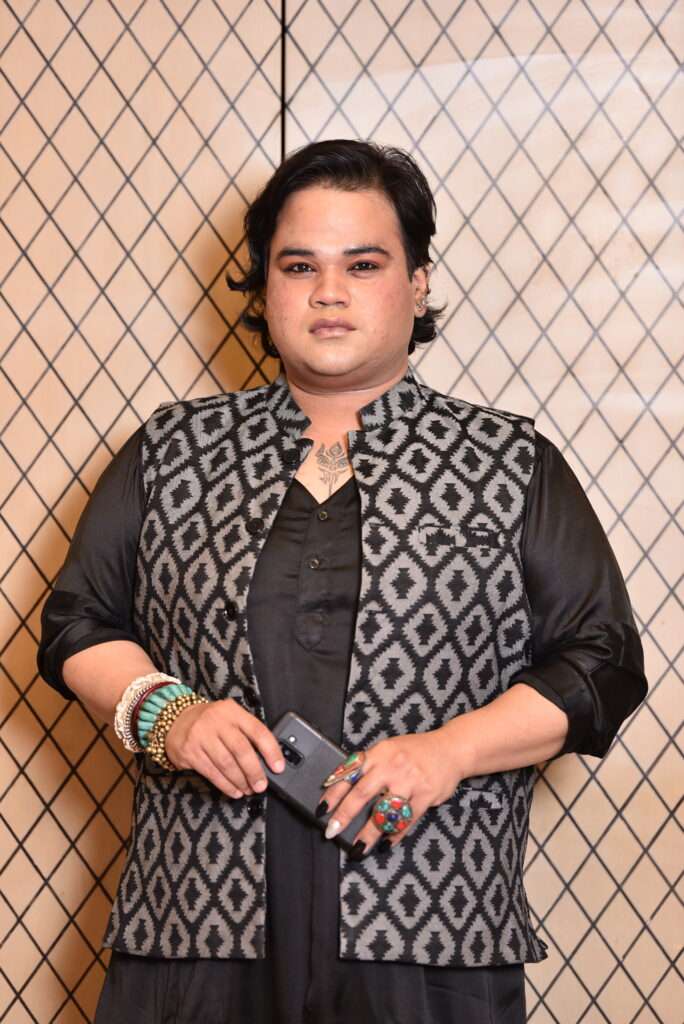
So, when you were young, what kinds of homophobia did you face?
I think none because I can’t even relate to a memory where I am met homophobia. All I could think of is most people bullying me. Homophobia to the expression of happened then was not homophobia to me because I had no understanding of it. Now today, I might say homophobia because today people know there are people like homosexuals around. That time they didn’t know such terminologies. They were not anti-homos, they were anti-effeminate, they were anything and everything to do bullying not because I was a homosexual person but, I was fat, I was fair, I was feminist. So, I think homophobia started happening when I started going professionally. I saw people not giving opportunities because they are just homophobic. They are homophobic to our existence, they are phobic to our existence actually. So, I saw it professionally, I saw a lot of issues of homophobia, I now face a lot of discrimination, even today as well. But bachpan mein, not really.
So, how open are you to your family? We would also like to know your coming out story.
Absolutely, I can’t live without being open! I’m absolutely open, I can’t live being suffocated. I never actually hide. I have no coming-out story. To me, my existence as a homosexual individual took a lot of time. So, at twenty-one, I lost my father so my whole life’s existence changed. So, at twenty-one or twenty, when people express their identity, being rebel though I was rebelling that time as well. But all of it shifted to you got to take care of your family. I must say my sexuality or being myself was very much secondary. So it was like, not just that I was not living a homosexual life, my whole existence changed around this situation. So, I never, for a very long time, what should I say, twenty seven or twenty six, I came out. I came out publicly in 2017, not really far. Let me say, publicly means I started giving my interviews.
Well, that made a lot of issues. In 2009, we got everything from Delhi High Court while I was in the first year of my college, and I was like, wow, life is sorted. We studied and then during 2013, and we were told, hello, go back. And, I was not ready to go back. In 2009, my sexuality was not a big deal to me because it was legal, and it was like, what a big deal. But in 2013, when we were told to go back, I felt like resisting from there.
So, from 2013, I started taking baby steps of existence and change. I was active in socio-political scenarios since 2014 but I was talking more about feminist issues. I used to go to all these feminist conclaves and then I used to do shows which were very feminist in nature. I used to do shows on marital rape, female feticide, on the phase of feminism with Swara Bhaskar. I had these very individualistic talks in my shows. I did a show with Gauhar Khan in 2015 on marital rape which no one was talking about during that time. I also did a show in 2016 or 2017 about changing phase of feminism, that how people don’t need to wear a khadi to be activists or feminists, they can even wax their legs and be vocal about feminism. So, the whole idea of feminism was changing, and I did an ample amount of shows on that. I did shows on feminist identities with people like Mandira Bedi, Laxmi Narayan Tripathi, and those who not. With Zeenat Aman, I did an age issue show.
And, one day I felt like if I didn’t speak about all of it. It’s time, you know, by 2017, society was really facing a lot of issues. It was a time when we were at the peak of seeing suicides, seeing people abused, seeing people being made abused in the police station, seeing people not being able to exercise their existence. And I said that if I have been blessed by a voice and recognized for my views, why don’t I come out and say I am one of them? My whole idea of coming out publicly was that if you love me, as Akassh K Aggarwal as a feminist designer, would you love Akassh K Aggarwal as a gay designer? My reason for coming out publicly was to fight against the stereotypical idea of how gays or the LGBT community is. It was about breaking the stereotype of how a gay behaves and what is his life expectations, for us our standards and stereotypes were set by Bollywood for gays were reduced a lot. People like people Bobby Darling were our only reference images, but (?) was not.
You know, people like Vikram Seth were not discussed as our icons, but people like Karan Johar were discussed. As an individual, I really looked up to was Rituparno Ghosh. Oh God, when I saw his first movie I got goosebumps. I was like “yehi toh hun main”. My reference point of life came from him. I was like I was like this is me. this is me. The only two reference points of life where I said this is me – one was the idea of Ardhanariswara, the Shiva, and Shakti and I started reading about that. But the representation of Shiva and Shakti in human form was Rituparno Ghosh. I really looked up to the way he crafted his cinema. He suffered for what he said but he kept on bringing change.
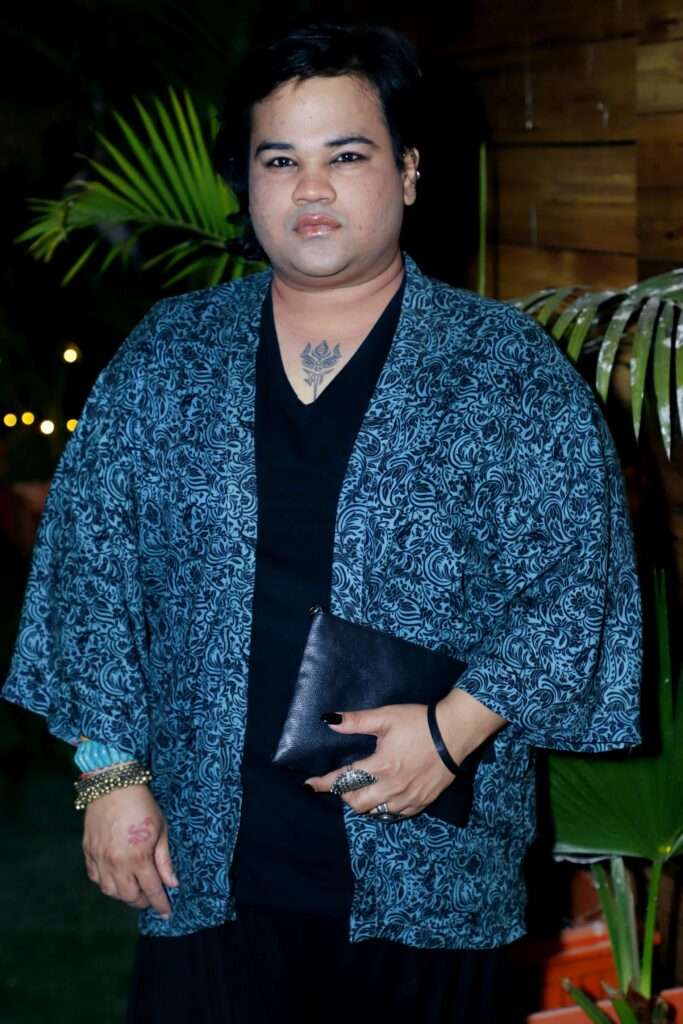
So, tell us about your journey as a queer designer.
In 2017, I was one of the few Indian designers who got transgender models in mainstream runaway. Before, that they were used as only show-stoppers. They were used as the icing on the cake, but I tried to push the envelope and said, “why can’t they be full models?” Do they only have to come, and show stop or be show openers, then to be a message. And I felt like this is high time, so we have to move from the message to the messenger and let’s push the envelope further and let’s mainstream the transgender model.
In October 2019, I did a show that included five trans models, not much more than that. Since then, I have been having trans models, around ten or fifteen now in my shows. I am also a groomer for Miss. Trans Queen India, a transgender pageant which goes to an international platform in Bangkok, Miss Trans International. So, I’m in grooming panel for Ms. Trans Queen India, as well ,and that’s where I work as a designer, where I am a groomer, as their communication expert, dealing with their attitudes, their professional expectations out of them. I’m not judging them but that’s the fact that essentially the trans models are not that equipped. Back in 2017, It was like pre-grooming them, like your own baby. It was not that easy because you are not getting a professional model, you really have to groom the model before she will really be on the stage because on the stage, the model doesn’t look like other models. Then it’s not worth it. There’s no favors in the professional industry. If you are coming as a professional, behave like one, give it like one. So, there’s a lot of professional grooming, which also, I do.
Amazing! How has been your experience working with so many celebrities?
Ah, humbling, very humbling. As well as nice and gratifying.
Ever face any queer phobia from them?
Umm, not really, not really. Yeah, no.
So, would you like to explicate a bit about your experience working with the celebrities such as Susmita Sen or Gauhar Khan?
Susmita, well, in 2016, she gave me an award for Accessory Designer of the Year. And, for me, it was like, the full circle of life was coming, that somebody who I have looked up to and loved and everything. So, I gave her a letter while she was giving the award. I prepared a letter for her, pen downing my memories attached to her that how I kept my brand name which is in reference to what is her Jewelry Brand name. So, she and her mother had a jewelry business. Even, they used to have a store in Delhi Saket, as well.
How I started my jewelry journey even influenced by her and then how many jewelry brand name was influenced through her, she kept her daughter’s name, I kept my mother’s name. She used the word ornaments, I picked up that word ornament and kept in mine. And, how I always used to see her Coca Cola ad while my sister wanted to watch the Pepsi ad. It was a very beautiful, handwritten note, which I did for her. And, she was almost in tears. She hugged me multiple times, kissed me, and accepted it. She said, “I really want that letter” and i was like, “okay”, and I still feel like she must be having it with her.
So, it was a fan-mail kind of a thing. With celebrities, I have really been fortunate to work with people like Laxmi Narayan Tripathi, Geeta Maa, Zeenat Aaman, you know, these people, these individuals are very professional. As long as you are doing what is supposed to be done, you will not see them doing hunky dory, you know what happens is that it’s my personal experience that so many times the designer tries to be celebrity. That is not required if you are having a celebrity on board, let that individual be the celebrity. You have to respect them. For so many times, I have seen my co-designers taking for granted to their celebrities, then celebrities give them tantrums.
In my case, I’m somebody who would even touch their feet after the show, you know, I always take their blessings. I always take their blessings when they reach the venue and say thank you for coming. And, I again touch their feet while they go saying ”thank you for doing what you do.” I completely stay in absolute humility and gratitude toward their time to do because trust me, they are the khuda of the day for us. If we screw them, they screw us back. So, my experience with celebrities has been great because I was having my own to do and not to do things.
What’s your own experience with demisexuality.?
What is demisexuality? Oh God, naye sabdh milte rehte hain! (laughs) (Being demi-sexual means that you can’t have sex with a person whom you don’t know well, so you need to know a person. Basically, if you want to have a sexual encounter with that person you need to know that person pretty well.) Well, I haven’t had this much that I’d be able to divide which one is which. So, yeah, I would love to do that, I’m not somebody who can go in a hook up for sure. I like knowing the person well before getting intimidated for sure. But, I don’t know how to express it further. I am an individual who would love to know the person. In fact, getting into bed is not even a priority, I really like to be cuddled and to be loved. And, that can be only when it is more organic.
Alright, so what is your current relationship status?
Uh, single. Absolutely in love with myself and looking forward to loving someone too.
There people who appreciate and people who love, and there are people who sent me kind messages, and there are people who build my stand by saying, they look up to me for what I do.
Fans, no, because I just don’t like those words – fan and following. Oh, I love the word family for sure. And, I have many of them, but no, avi tak wo sapno ka raja nahi mila hain (laughs). And, my search, is like use jab dhondtna hoga wo dhoondt lega, I can’t really DHOONDTOFY!
Okay, so what are the ways you are serving for a better India for queers?
You know, I don’t have this vision of how I can solve this country or organize the community. I believe in all I try to do is to be a part of the community and try to do whatever I can do best from my space like giving trans employment for my shows, for my product launches or for grooming transgender models. And other than that, I have given my opinion and my voice, stood the queer community out, loud, and openly.
So, these are the few things I do. Do I look it as a contribution? I don’t, because this is what makes me happy in this way I look forward to helping out of the community to be able to walk with them and to be able to provide them something. Yeah, I just want to contribute myself to be of use to anyone, however.
So, have you faced any job insecurity or a job dilemma due to queerphobia?
Not really, again, I did three or four jobs in my life. And I’m, you know, a confident individual. I used to teach us as a faculty, in three different institutions as designing faculty. Somewhere, you know why I didn’t face queerphobia at a job because we, as designers, it’s like an acceptance of you to be gay or effeminate. It was easy for us to be feminine and gay as designers, toh yuha pe itna dikkat nahi aaya for sure.
Ahaan! So, are there many closeted celebrities in India, like in our Bollywood industry?
There are, many actually, but if they are in closet, then let them be. What can we do. Yeah, it’s just strange, it is stupid, yet it is very individualistic, and it’s very personal. So, to all those who are closeted, I always say them that we all are there for you, but the fact is that we all are individually alone.
So, both way it is, har kisi ko apna ladai, apna jaang.. jiski apni laraai ki fikhre hain na Archa, wo apne tahra se chalega. Jisko lambi laadai ya bdi laadai larni hain na, wo fir apni chhoti laadai o ko vul jata hain. It’s like how the individuals want to come out, for themselves or for the others. The idea of coming out is actually normalizing the culture, and people don’t get it. People don’t get it that we don’t want you to come out to show who you are, we want to normalize. You know, it’s strange.
So, are you expecting the Indian judiciary to make same sex marriage legal within the upcoming five years?
I don’t know. Mujhe toh 2018 me vi bishwas nahi ho raha tha ki wo hone wala hain, then the way it happened and didn’t talk about other rights, and the kind of current condition we are going through, even in the judiciary is not easy to do.
you know, individual rights and people rights these days are very much hand braked. So, I really don’t know unka kya man chahega, kab chahega. But, I’m very happy with people from the community knocking the doors. I’m very happy that back to back koi na koi PIL chalti rehti hain ya fir koi na koi case, they have to do a hearing. I’m happy that the community is forcing them to.
So, what are the projects you are looking forward to? Maybe some upcoming projects that you can share?
Yeah, I’m working on my book, I’m working on a book. I’m talking about the intersectionality of an Indian queer in the individual world. So, that’s the book I’m working on and I’m expecting it to get out (published) within 2021.
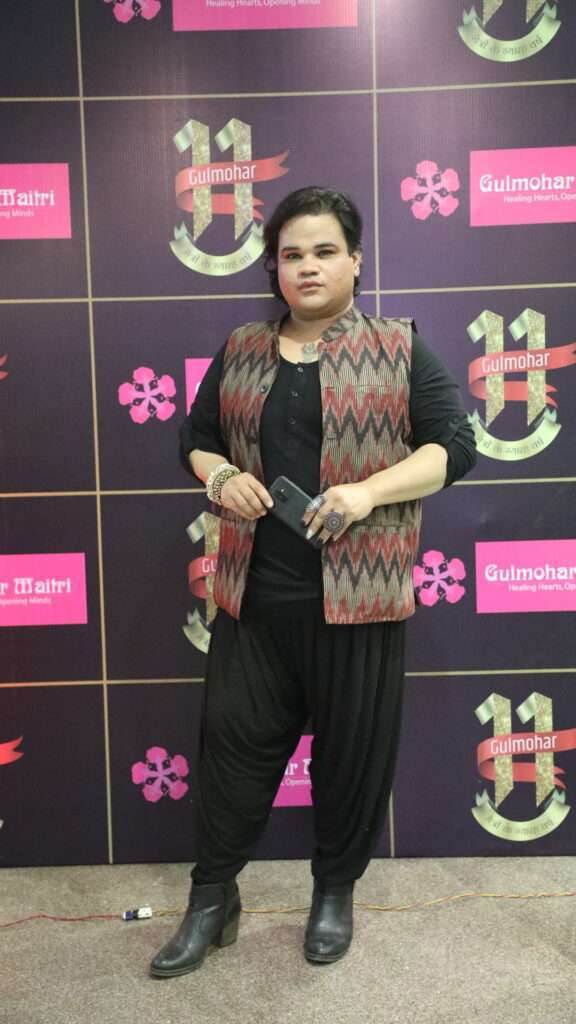
That’s really great! How is PRIDE INDIA doing? Elucidate a few achievements.
you know, PRIDE INDIA is doing good. My book’s name is also PRIDE INDIA, and that’s the book name we have kept as well. PRIDE INDIA is taking baby steps. I’m happy we’ve given training to fifty transgenders. Using online platforms, we taught them to do jewelry making at home… we were actually teaching them skill training of how to do haath ka kaam jewelry and all of that. All those baby steps we are taking and I’m very happy with it.
Nice. So, anything else that you would like to share?
I just talk about what we are doing, what you’re doing and what it has been, it all gets worth it. And, I really want to address I don’t see our community coming together. I have started seeing individuals working in individual space, and I completely respect that but somehow our core existence and core resistance is lacking now, and I just hope we all come together because the fight against us is huge Hume bohot saal lag gaye decriminalization paane ke liye. I just hope we don’t celebrate this so much that the other rights take a lot of time. So, I think it’s high time, society, individuals, and all those people from our community who started being talking about their religious identity, I really find it very weird.
You know, I don’t understand why people are talking about divisions? While the community should all come together and beyond our religion.
So, instead of dividing their identity, I think the queer community should come together. We are queers, we are not anything else is what I believe – I’m not Hindu, I’m not Muslim, I’m not man, I’m not a woman, I’m beyond stereotypical divisions.
I’m queer, and that’s my existence. And identity is all about to be who I want to be when and where and not to fall into the trap of identity.
Aptly said! And, all the best for your book! Thank you so much, Akassh for this inspiring interview!
